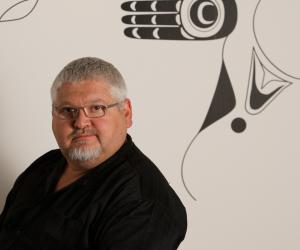Watch the Trailer
-
Watch a short trailer to get a taste of this conference talk.
Clive van Heerden’s work as an innovator is concerned with turning a methodological tension into a creative tension. This happens by creating design provocations that manifest possible lifestyle scenarios of the near future.
By asking really stupid questions you can produce interesting results, says Van Heerden
The other question that comes up for him is whether something is design or technology.
One of my bugbears is that design has stopped asking very difficult questions, particularly of tehnology, he says
"Do we need to make a new one of whatever we're making every year just for the hell of it?" Van Heerden asks.
Some of the projects Van Heerden has worked on touch on taboo subjects.
When putting together a project team he draws on people from a variety of backgrounds in order to create interesting discussions.
We're looking for people who are not pigeon-holed, says Van Heerden
Van Heerden believes that art should be used as an instrument of innovation and is interested in the “reaction of a fashion designer to a physicist in a discussion about antennae”.
Artists and scientists get along extremely well, unlike designers and engineers, he quips
Another important aspect for Van Heerden is not to start with a brief but to define a territory in which to work. Depending on the nature of the subject, it's completely free, he says.
In this talk he runs through a variety of projects that show that he and his team are not pigeon-holed or stick to their comfort zones, and which have relevance to the audience.
We were interested in how people felt about electronics in the human body, he says
He speaks about projects such as the Electronic Tattoo.
Van Heerden notes that they don't look at unlikely scenarios. "There's no science fiction," he says. All of the projects he works on are probable even though they don't necessarily exist. Nonetheless, "we're looking for taboo subjects," he says.








